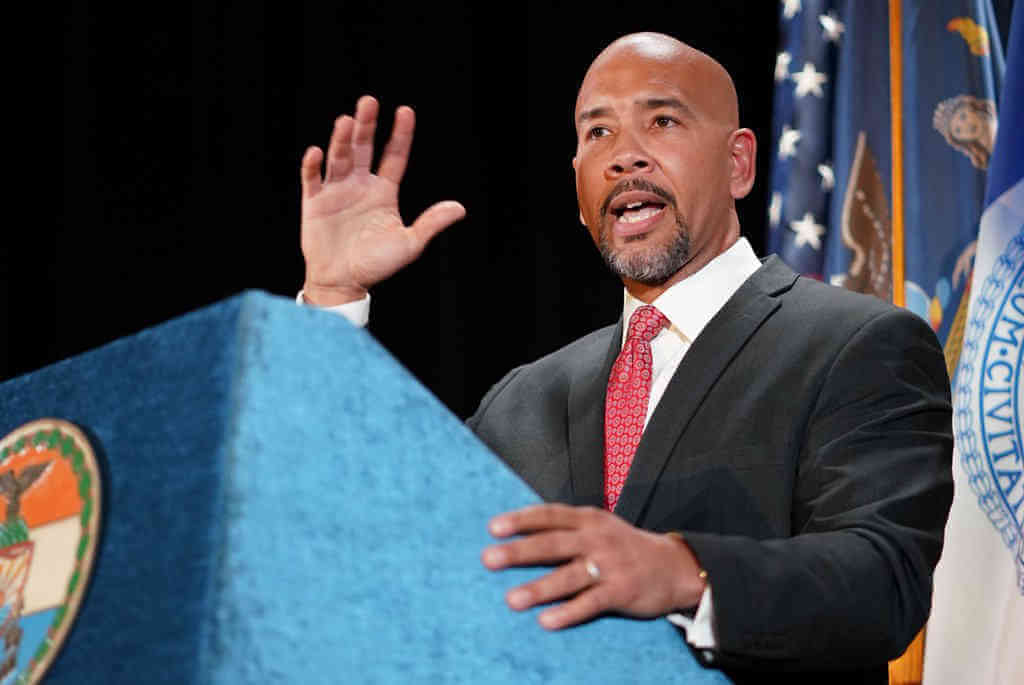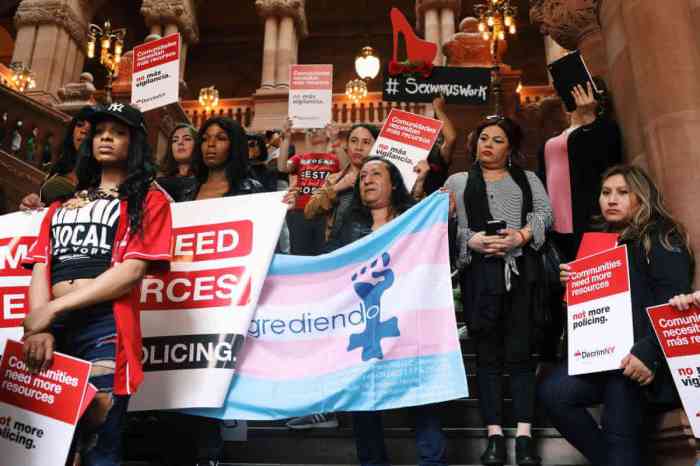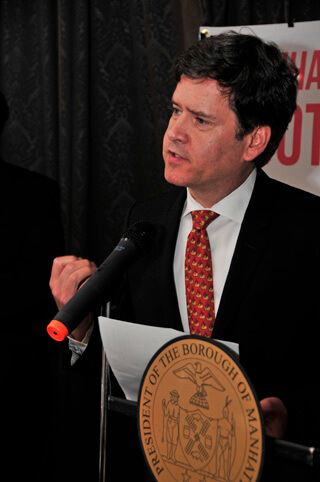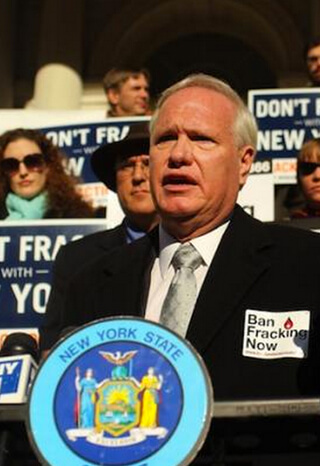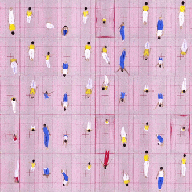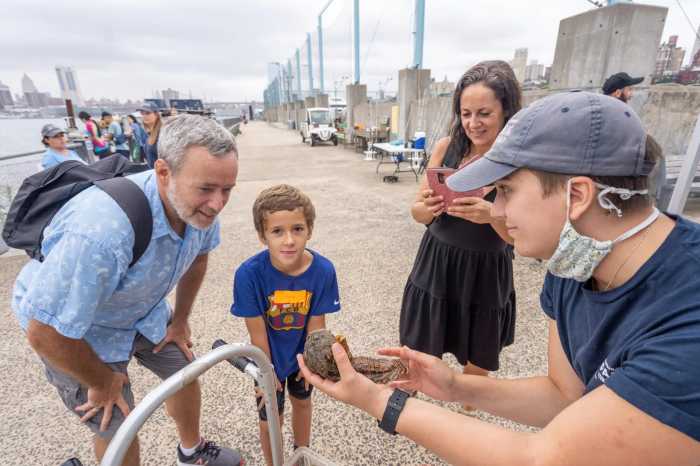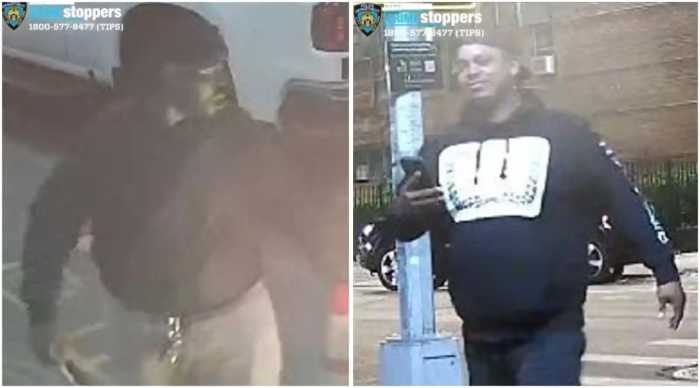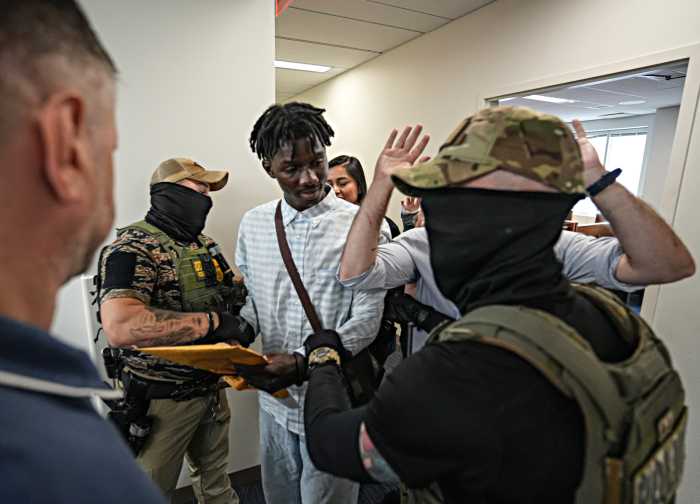A bill due to be introduced in the New York City Council that would require LGBTQ-specific training for service providers at nursing facilities and senior centers is the result of complaints local lawmakers have received from constituents who have felt mistreated in such settings because of their sexual orientation or gender identity.
Bronx Borough President Ruben Diaz, Jr., wrote to the State Department of Health (DOH) raising the issue after getting feedback from older LGBTQ residents of that borough, and he has worked with Queens City Councilmember Paul Vallone — a member of the Council’s Aging Committee and former chair of the now-defunct Subcommittee on Senior Centers — to draft legislation at the city level to improve LGBTQ cultural competency in senior centers.
Vallone’s bill, which the Queens lawmaker plans to introduce on May 8, would require those who work at senior centers as well as employees of Department for the Aging contractors to be trained in preventing and eliminating discrimination that is based on sexual orientation and gender identity and expression. The requirements would include mandatory refresher training every three years.
Under that law, training would also be made available to senior center residents and guests, including counseling regarding preventing and eliminating discrimination as well as information on “what avenues of relief and action are available to those who have experienced” it.
Senior centers would also be required to post notices in building common areas about the trainings and the rights residents and guest have to be free from discrimination.
In a written statement, Vallone said the bill “sends a clear message that we as New Yorkers will not tolerate any forms of discrimination and intolerance in our communities… By codifying into law anti-discrimination training for senior service providers on sexual orientation, gender identity and expression, we will help ensure our city’s elder population feels safe in the centers and facilities they rely upon for health, educational, and social services.”
Services & Advocacy for GLBT Elders (SAGE), which has been working behind the scenes with Diaz and other lawmakers on a variety of fronts to improve conditions for queer seniors, offered strong praise for the legislation, saying the organization “fully supports” what they say could be a “game-changing” law.
“It will ensure that our city’s LGBT elders can attend senior center programs where they are celebrated and served with a dignity,” SAGE spokesperson Alysa Stryker said. “Most important, it will help ensure that they can be exactly who they are.”
At the state level, Diaz’s letter to Dr. Howard A. Zucker, the health commissioner, noted that the DOH’s Home Care Curriculum and Nurse Aide Training Program requires only a half hour of general “diversity” training. Diaz called on the DOH to require an entire unit of “dedicated LGBT competency training.”
Diaz’s letter, which was provided to Gay City News, also stated, “This curriculum must address best practices for providing complete dignity in care settings. Additional training on this issue should be mandated to maintain a license as part of the required ongoing training for home health care workers.”
A DOH spokesperson confirmed that the department is currently reviewing the letter, which was dated March 27. Diaz told Gay City News that his letter and his work with Vallone on the City Council bill represent an effort to correct problems presented to him by his constituents.
“Our elder LGBT residents often feel like they have to go back in the closet and not be their true selves during their golden years,” Diaz said. “This can be both painful and cruel.”
SAGE is also working with out gay Manhattan State Senator Brad Hoylman to push two measures in the Legislature related to LGBTQ seniors. The Long-Term Care LGBT Patient Bill of Rights would implement wide-ranging protections for patients in long-term care facilities, while the Restoration of Honor Act would make veterans who were discharged due to their sexual orientation or gender identity eligible for veterans programs, services, and benefits provided by the state.
A spokesperson for Hoylman told Gay City News that the senator is hopeful both bills, currently in committee, will win passage before the end of the legislative session in June.
SAGE noted that the need to move on both the city and state level to improve senior centers’ cultural competency reflects “differing levels of jurisdiction and oversight around issues pertaining to aging, including when it comes to LGBT elders.”
Among other initiatives, SAGE is also spearheading two LGBTQ-friendly senior affordable housing developments, one in Brooklyn and the other in the Bronx. The 145-unit Brooklyn residence, Ingersoll Senior Residences at 112 St Edwards Street in Fort Greene, will open later this year. In the Bronx, the 82-unit Crotona Senior Residences at 771 Crotona Park North will open its doors in 2020.
Diaz allocated $600,000 towards the Bronx development, which SAGE said he “passionately supported.”
“These buildings will be a beacon to so many elders,” Stryker said. “And these buildings are the physical manifestation of the partnerships that SAGE has created with champions at the city and state levels — partnerships that SAGE has developed throughout its 41 years.”
Nationally, SAGE is working with the Human Rights Campaign Foundation to develop the Long-Term Care Equality Index, which the two groups say will be the first nationwide assessment of how long-tern care facilities are treating LGBTQ residents. That survey will mirror HRC’s Healthcare Equality Index, which grades healthcare facilities on their policies surrounding LGBTQ patients.

